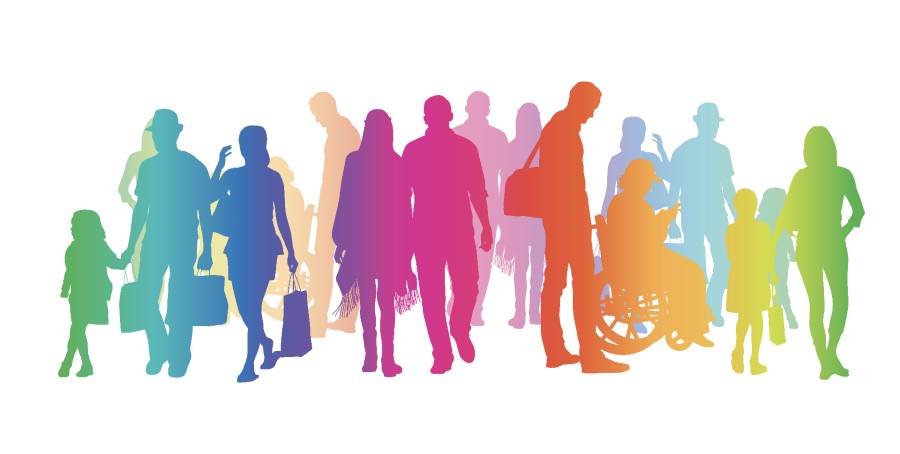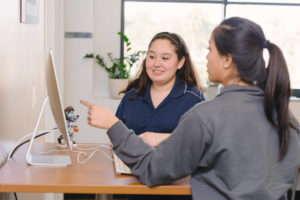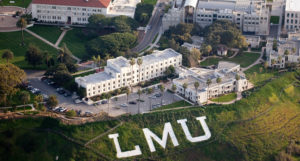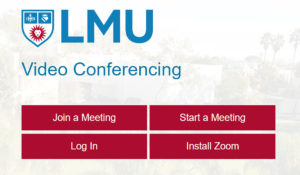INTERCULTURAL AFFAIRS | What comes to mind when you think about access to learning opportunities in higher education? Maybe, the blurb on our syllabi about the Americans with Disabilities Act (ADA) of 1990 runs through your thoughts. The truth is, most of us don’t think a lot about these matters. Yet, for our students, access means more than providing accommodations, it is about creating environments that “truly serve the needs of an increasingly diverse population of learners” (see “Universal Design for Learning in Higher Education,” Tobin & Behling 2018). Professor Vicki Graf of the School of Education, a longtime advocate for strengthening such access for all our LMU students, addresses these issues as she begins this conversation with us.
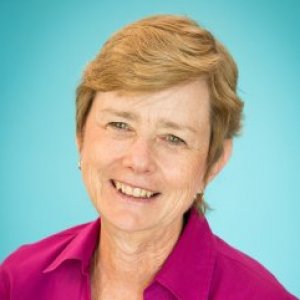
The Mission Statement of LMU guides all of us as we educate our students. It serves as our commitment to encourage learning, to educate the whole person, and to do this through the service of faith and promotion of justice. This perspective is especially relevant for the LMU students who have a disability or are diagnosed as having a disability while attending LMU. About 10 percent of LMU undergraduates are enrolled at LMU based on their academic performance in high school and have an identified disability based on federal legal criteria. These laws also prohibit discrimination on the basis of the disability while also establishing criteria for certain accommodations to be made so that students have equal access to courses. While LMU is required to follow these laws, the mission statement guides us to also follow the spirit of the laws regarding access to higher education.
Instead of focusing on individual disability labels and categories such as Learning Disabilities or Autism Spectrum Disorder, Universal Design for Learning (UDL) referenced above provides a framework for all of us as faculty and staff to recognize and remove barriers within our instruction or physical environment in order for all students with and without disabilities to be successful. The use of technology at LMU has provided many opportunities for faculty to provide students with multiple means to access the curriculum through electronic textbooks or videos with captions; iPads and iPhones are especially helpful for all students through the use of their accessibility features. This accessibility meets the individual needs of all students.
The next step for us at LMU is for faculty to create ways for students to demonstrate their knowledge using multiple means of representation. While writing essays and papers or completing exams in a written format has been the standard practice in higher education, universities are moving forward with creating opportunities for students to demonstrate course requirements in a variety of ways. Georgetown University’s Teaching Commons website provides faculty with ways to structure syllabi to allow for access for students from a variety of backgrounds including students with disabilities. It also recommends ways to assess assignments from a UDL perspective.
Historically, students with disabilities were often discouraged or prevented from attending universities because it was assumed that they were not capable of meeting the requirements of a college education. While laws had to be passed to prevent discrimination of individuals with disabilities who were otherwise qualified, there are now many opportunities for individuals with disabilities to successfully complete their college education. Implementing UDL at LMU, in addition to the accommodations provided to the student with a disability, creates greater opportunity for all LMU students to be successful and another example of living the mission of LMU.
For our OIA Spotlight this month, we reached out to Priscilla Levine, director of Disability Support Services; Katherine Pérez, director of the Coelho Center for Disability Law, Policy and Innovation at LLS; Mary Jo Iozzio, O’Malley Visiting Chair in the Bioethics Institute; and Sue Scheibler, professor of film and television studies. We celebrate the work that these individuals have been spearheading, and encourage the LMU campus to stay tuned in and to join a network of advocates for Universal Design for Learning – actively contributing to a more inclusive community. Read more on their vision here.
OIA Buzz
- Quote of the Month: “A hero is an ordinary individual who finds the strength to persevere and endure in spite of overwhelming obstacles.” – Christopher Reeve
- Would you like to organize a Search Process Workshop for your search committee or department? Please complete the form to schedule!
- D & I Quick Tips: Inclusive Pedagogy
- FOR DEPARTMENT CHAIRS AND ADMINISTRATIVE LEADERS:
- Don’t forget to RSVP for our “Restorative Justice Practice for an Inclusive Climate” workshop, co-facilitated by Schoene Mahmood (CURes) on 20, 9-11 a.m., Von der Ahe Family Suite in Hannon Library. More information here.
- Call for 2020 Inclusive Excellence Grant Proposals – due March 6, 2020
- Stay connected: Follow us on Twitter @LMU_OIA! #StrengthenDiversity #OIASpotlight
